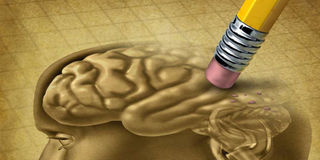Dementia: Brain disease that robs people of sunset years

Dementia patients move from having strong personalities to being dependent on others for their day-to-day survival. FILE | NATION
The life expectancy of a Kenyan has improved over the years, from 51 years at the turn of the century, to 63 years according to World Health Organisation estimates.
By 2030, the Ministry of Health projects that life expectancy will have shot to 70 years. However, as people go older, they face the risk of the degenerative brain disease dementia, that robs people of their sunset years.
Dementia is a neurological disease characterised by deterioration in memory, thinking, behaviour and ability to make decisions and perform everyday activities.
A person with dementia may have problems recognising loved ones, being aware of their surroundings or doing basic things like dressing and feeding themselves without assistance.
Although, it affects the elderly, it is not a normal part of ageing.
Early onset dementia is rare, but not unheard of. The chronic degenerative condition affects a person’s ability to process thought, and the impairment in cognitive function commonly accompanies deterioration in emotional control, social behaviour or motivation.
POSSIBLE CAUSES
Alzheimer's disease is the most common form of dementia in people who are over 65 and contributes to 60 to 70 per cent of dementia cases.
Dementia can also result from a variety of conditions like chronic alcoholism, stroke, Wilson’s disease, herpes virus and HIV infections, thyroid disease and vitamin deficiency.
Although age is the strongest known risk factor for dementia, some people will develop dementia, while others live to a ripe old age with their mind as sharp as a 20-year-old.
Apart from age, the risk of developing dementia is driven by genetic factors, health influences and lifestyle habits such as smoking and drinking. People with a family history of dementia, stand a higher risk of developing dementia with time.
High blood pressure, obesity, high cholesterol and diabetes are also risk factors, with many studies showing that people with one of these conditions during midlife have a two times higher risk of developing dementia later in life.
Unfortunately, there is no one test to determine if someone has dementia. Doctors diagnose Alzheimer's and other types of dementia based on a careful medical history, a physical examination, MRI scans and the characteristic changes in thinking, day-to-day function and behaviour associated with each type of impairment. Laboratory tests and MRI imaging are done to exclude other causes of dementia which could be treatable especially in younger patients.
The early stage of dementia is often overlooked because the onset is gradual and can go on for several years. Although the early signs vary, common symptoms include progressive forgetfulness, losing track of time and inability to recognise familiar places.
As dementia progresses to the middle stage, the signs and symptoms become clearer – forgetting recent events and people's names, getting lost at home, having increasing difficulty with communication, needing help with personal care and behaviour changes such as wandering and repeated questioning.
The late stage of dementia is one of near total dependence and inactivity. Memory disturbances are serious and the physical signs and symptoms become more obvious. There is no cure and no treatment that stops the progression of dementia, but there are drugs that may temporarily slow its progression.
Once the neurologist has made a diagnosis, he or she will advise on medication that can help the patient. However, dementia resulting from infective, thyroid problems and vitamin deficiency can be reversed.
While there is nothing one can do about ageing or genetics, your health is still in your hands. Keeping your weight within the appropriate bracket, maintain healthy levels of blood pressure, cholesterol and blood sugar to protect your brain.
Avoid head injury, smoking and depression. Regular exercise and brain challenges through cognitive, mental and social activities are associated with a lower risk of dementia. A healthy diet, low in red meat and high in Omega 3 fatty acids, coconut and olive oil, lots of fruit and vegetables, nuts, whole grains, legumes and vitamin E is recommended.
Dementia causes disability and dependency among the elderly, and the changes that accompany it take a toll on caregivers and families, who then need education and counselling. There is low awareness of dementia, resulting in stigma and barriers to diagnosis and care. Communities may brand old people with dementia who are “behaving strangely” witches and ostracise them, yet dementia patients need the same care, love and understanding accorded to children.
Study paves way for new dementia therapy
Researchers have found a treatment that can reverse changes in brain blood vessels, associated with small vessel disease (SVD).The disease is a major cause of vascular dementia (and stroke) and can worsen the symptoms of Alzheimer’s disease.
Until now, it was not known how changes in small blood vessels in the brain cause damage to brain cells. Researchers found that SVD occurs when cells that line the small blood vessels in the brain become dysfunctional.
This causes them to secrete a molecule into the brain, which stops the production of myelin, the protective layer that surrounds brain cells, leading to brain damage.
Treating rats with drugs that stop blood vessel cells from becoming dysfunctional reversed the symptoms of SVD and prevented brain damage.
However, further studies are needed to test whether the treatment works when the disease is firmly established, and to check if the treatment can reverse dementia symptoms.
Findings were published in the journal Science Translational Medicine.
Dr Mbugua is a neurologist at the Aga Khan University Hospital, Nairobi.


